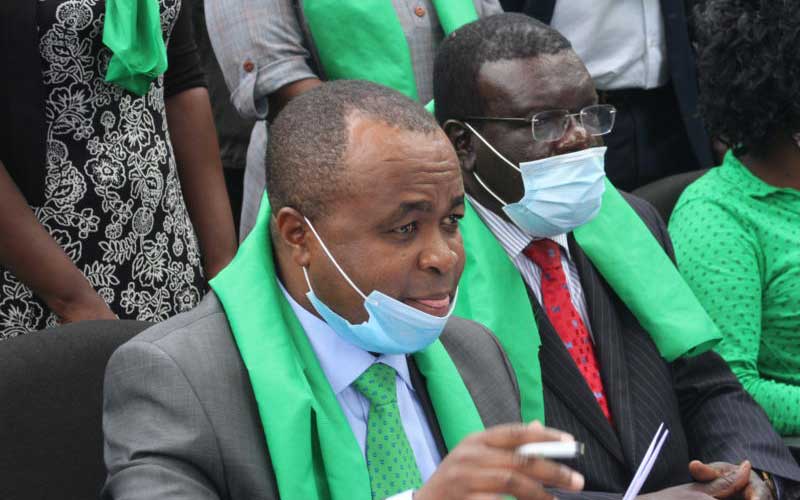×
The Standard e-Paper
Kenya’s Boldest Voice

Chris Wamalwa (left), the secretary general of Ford Kenya group led by Musikari Kombo, addresses the Press. [Collins Kweyu]
The turmoil in Jubilee and Ford-Kenya parties follows a historical pattern mainly blamed on ethnicity and personality-centred politics.